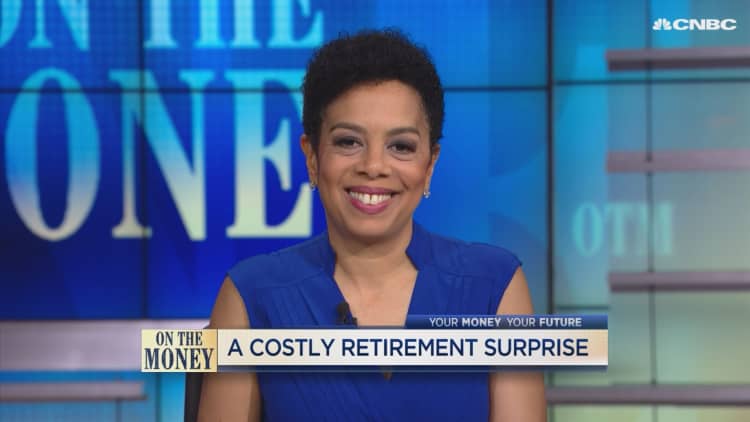Leaving your old job for a higher salary and better prospects? Don't forget your 401(k).
More than 4 in 10 adults polled by Edelman Financial Engines don't know that you can let your 401(k) savings continue to grow in an old employer's retirement plan.
The financial advisory firm surveyed 1,071 people, ages 35 to 64, in February and March.
Some 3.5 million people quit their job in April, up slightly from 3.3 million in April 2018, according to the most recent data available from the Bureau of Labor Statistics.

Amid the excitement of heading toward greener career pastures, it's easy for employees to forget about their existing nest egg.
"The biggest mistake that people make is that they don't think about their old 401(k)," said Rockie Zeigler, a certified financial planner and founder of RP Zeigler Investment Services in Peoria, Illinois.
"Instead, they're thinking about the new job, their health care and benefits," he said.
In-plan protection
In all, $5.67 trillion was saved in 401(k)s as of March 31, according to the Investment Company Institute, a trade association for the mutual fund industry.
The average 401(k) account balance at Fidelity Investments hit $103,700 at the end of the first quarter.
There isn't anything necessarily wrong with leaving your money in your former employer's retirement plan.
In fact, money that's held in a 401(k) plan is subject to protection under the Employee Retirement Income Security Act. It requires employers to operate the plan as fiduciaries and act in the best interest of participants and beneficiaries.
Erisa also protects your 401(k) from seizure by creditors.
Savers may lose those protections once they roll over their retirement plan savings into an individual retirement account.

Depending on the state in which you reside, your IRA may or may not be subject to creditor protection.
Further, while the Securities and Exchange Commission recently voted to approve a new regulation that would require advisors to disclose their conflicts of interest, it doesn't require all of them to be fiduciaries.
As a result, unscrupulous advisors could still roll over your assets into inappropriate investments or products that are too expensive.
"There are some bad actors with great personalities," said Vance Barse, a wealth strategist at Manning Wealth Management in San Diego.
"Not everyone needs an advisor, but it's important to know the difference between brokers and fiduciaries," he said.
Fee-conscious
As you decide whether to stick around or leave your old employer's plan, think about how this might affect your investments.
Fund fees in retirement plans have been falling over time.
For instance, the average expense ratio of a stock fund in a 401(k) was 0.77% in 2000, according to the Investment Company Institute. It declined to 0.45% in 2017.
More from Invest in You:
These remote jobs come with salaries topping $100,000
The secret to getting your resume past the robot rejections
These people in their 30s are doing a simple thing to get rich
But not all retirement plans are cheap.
Fees for small 401(k) plans — those with fewer than $10 million in assets — can run 1.19% to 1.95%, according to an analysis by America's Best 401k.
On the other hand, an advisor who charges by assets-under-management might assess a 1% fee to manage your rollover.
Taking the next step
Whether your 401(k) assets stay or go, consider the following before you proceed:
Avoid leakage: Loans, unexpected withdrawals and cash-outs of 401(k) accounts with $5,000 or less all have the same negative effect: They all devour long-term savings.
If you leave your old job with an outstanding loan against your retirement plan, you're on the hook to repay it.
Nearly 30% of the individuals surveyed by Edelman Financial Engines were unaware that certain distribution options from their retirement plans could result in taxes and penalties.
Withdrawals and cash-outs of 401(k) accounts trigger an income tax bill and a 10% penalty if you're under age 59½.
Consider pros and cons: Leaving the 401(k) doesn't work for everyone. Review fees and investment selection before you proceed.
"A lot of times we're comparing the two plans and seeing whether it makes sense to keep it where it is or consolidate it in the new 401(k)," said Chad Chubb, a CFP and founder of WealthKeel in Philadelphia.
Whether you can roll your old plan assets into your new 401(k) will depend your new employer's rules.
Research your advisor: If you decide to go to a financial advisor, check him or her out on the Financial Industry Regulatory Authority's BrokerCheck page, as well as on the SEC's investment advisor search.
Be clear about the terms of engagement and ask whether he or she is a fiduciary.






